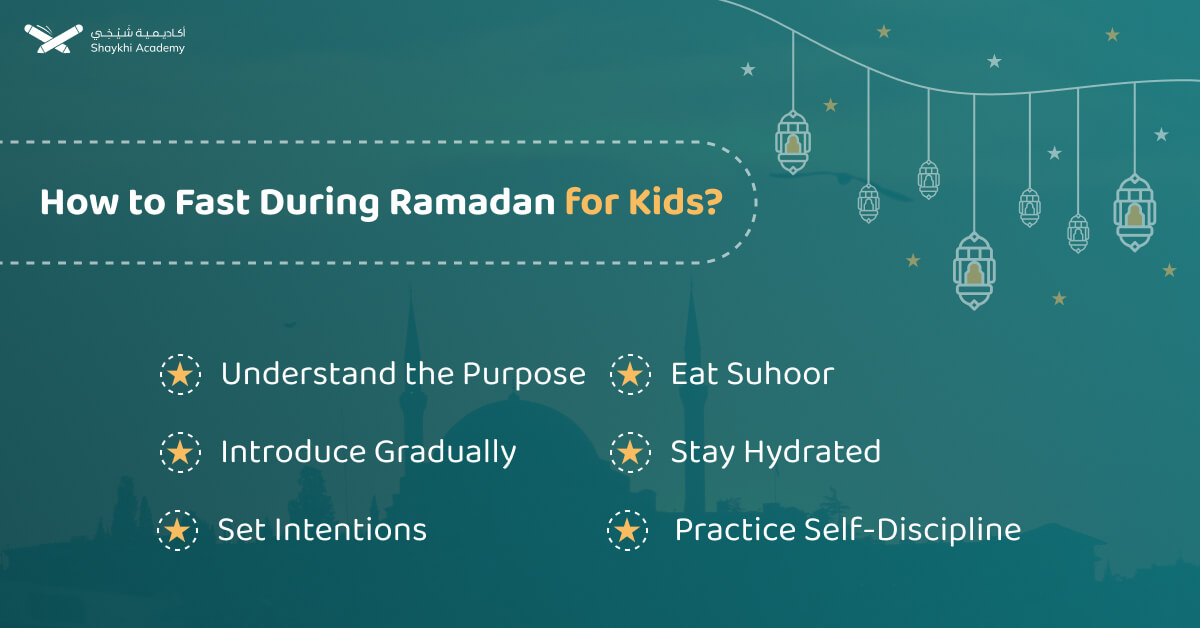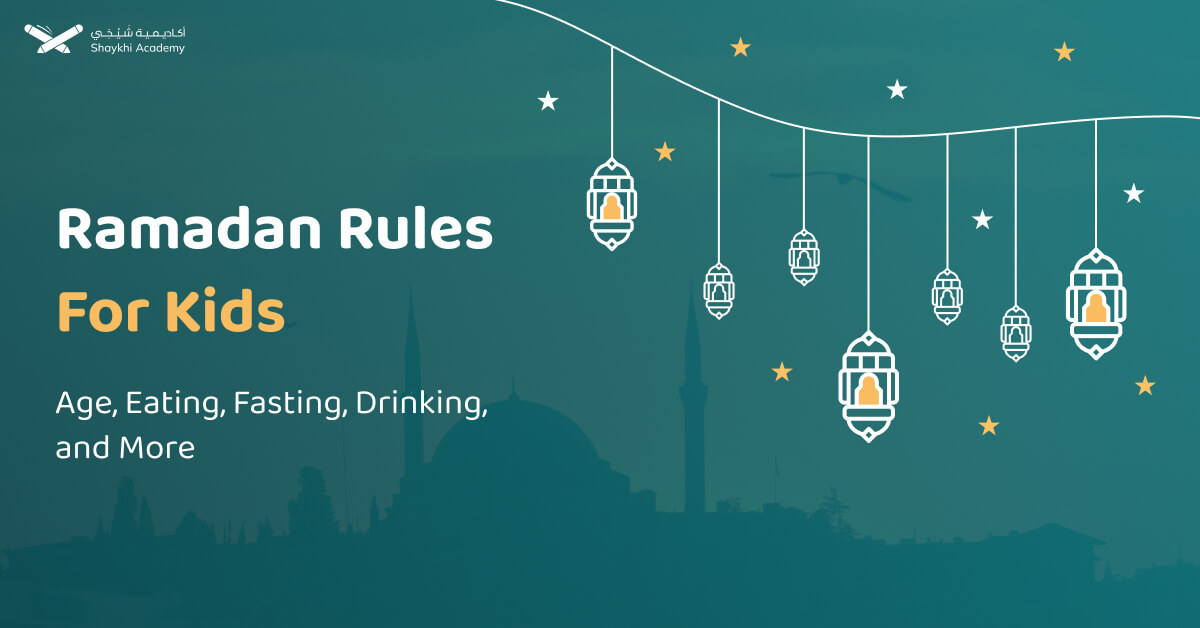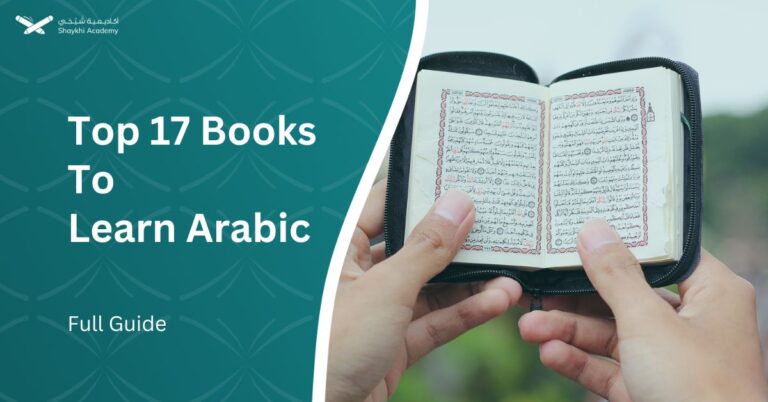Ramadan Rules for kids is a gradual process that requires careful consideration of their age, maturity, and physical well-being. While adults are obligated to observe fasting during this sacred time, questions often arise regarding the rules and guidelines for children participating in Ramadan.
This article aims to shed light on the different aspects of Ramadan for young Muslims, addressing common questions: can children drink and eat during Ramadan? Do kids have to fast during Ramadan? At what age do kids start fasting for Ramadan? Can a 9-year-old fast in Ramadan? How to fast during Ramadan for kids? and offering guidance for a meaningful and joyful experience.
Defining Ramadan Rules and Fasting for Kids
“Ramadan Rules and Fasting for Kids” refers to the guidelines, regulations, and practices associated with children’s participation in fasting during the holy month of Ramadan in Islam. This encompasses understanding the age at which children may begin fasting, the considerations for their readiness and health, the rules surrounding fasting obligations, and practical tips for parents to ensure a positive fasting experience for their children.
Additionally, it involves exploring the cultural and religious significance of Ramadan fasting for kids, emphasizing the importance of spiritual growth, self-discipline, and familial support during this sacred time.
Understanding the Basics
Ramadan is a month when Muslims abstain from food and drink from dawn to dusk. This practice aims to cultivate self-discipline, empathy for the less fortunate, and a stronger connection with Allah. While fasting is obligatory for all healthy adults, it’s important to understand that children are exempt until they reach the age of puberty, which typically occurs around the age of 12 or 13 for girls and 14 or 15 for boys.
Instead of imposing full fasting on young children, it’s recommended to introduce them to the concept gradually. This can involve:
- Short Fasts: Start with short periods of fasting, like skipping a snack or delaying lunch. Gradually increase the duration as the child matures and expresses interest.
- Observing Pre-dawn Meal (Suhoor): Encourage children to participate in the pre-dawn meal, even if they don’t intend to fast the entire day. This helps them understand the spirit of Ramadan and involves them in the community aspect.
- Focus on Other Practices: While fasting might not be mandatory, children can still participate in other essential Ramadan activities such as prayer, reading Quran, and acts of kindness.
Can Children Drink During Ramadan?
Yes, children can drink water and other fluids during the fasting hours in Ramadan. According to Islamic teachings, children who have not reached the age of puberty are not obligated to fast during Ramadan. Hydration is crucial for their health and well-being, especially during hot weather. During fasting hours, children are allowed to drink water and consume food as needed.
Read also: Ramadan Facts For kids.
Can Babies Eat During Ramadan?
Yes, babies can definitely eat during Ramadan, they are exempt from fasting altogether. Their nutritional needs are crucial for healthy development, and restricting food and water can be harmful for them. It is essential to prioritize their health and nourishment during this period. Breastfeeding mothers should also continue to nurse their babies as needed, regardless of Ramadan.
Can Kids Eat During Ramadan?
Yes, kids can eat during Ramadan, children under the age of puberty are not obligated to fast. They can eat and drink as usual throughout the day. However, as they approach the age of puberty and express interest, they can gradually begin practicing fasting as mentioned earlier.
Do Kids Have to Fast During Ramadan?
No, kids are not obligated to fast during Ramadan. Their primary focus should be on their health and well-being. However, as they grow older and express interest, they can be encouraged to gradually participate in age-appropriate ways.
It was narrated from ‘Aishah (May Allah be pleased with her) that the Prophet (Peace and blessings of Allah be upon him) said:
“The pen has been lifted from three: From the sleeper until he wakes up, from the minor until he grows up, and from the insane until he comes back to his senses or recovers.” Hasan.
What Age Do Kids Start Fasting for Ramadan?
Kids don’t officially “start” fasting for Ramadan at any specific age. Fasting is not obligatory for young children until they reach adolescence, so, the official age limit for mandatory fasting is puberty, which typically occurs around the age of 12 or 13 for girls and 14 or 15 for boys.
However, this doesn’t mean children should be excluded from experiencing Ramadan altogether. Parents are encouraged to introduce fasting to their children at an appropriate age so they can become accustomed to it and earn rewards for their good deeds.They are gradually introduced to its practices and significance as they mature. The focus should be on understanding the spirit of Ramadan and participating in activities they can manage, like prayer, charity, and helping others.
The age at which parents should begin teaching their children to fast varies depending on each child’s physical readiness. Some scholars suggest starting around the age of 10, and others suggest the age of 12. This practice aligns with the example set by the Companions of the Prophet (peace and blessings of Allah be upon him), who encouraged their children to fast when they were capable. If a child experiences hunger during fasting, they may be comforted with distractions like toys.
However, it’s important not to force fasting on children if it poses a risk to their health or well-being due to physical weakness or illness.
Can a 9-Year-Old Fast in Ramadan?
Generally, yes, a 9-year-old can consider trying to fast. Many young children might be eager to start fasting as early as 9 years old, and they do choose to fast, even if it’s not mandatory. They may be inspired by their parents and siblings or simply curious about the practice. It’s important to support their enthusiasm and ensure they understand the purpose and limitations of fasting according to their age and maturity.
However, it’s crucial to prioritize their health and well-being. Start with short fasts, ensure adequate hydration, and be prepared to adjust based on their needs. Ultimately, the decision should be made in consultation with the child and their parents. The key is to listen to your child’s individual needs and interests and guide them accordingly.

How to Fast During Ramadan for Kids?
For kids who express a desire to fast during Ramadan, it is essential to ensure they understand the significance of fasting and its observance in Islam. Fasting during Ramadan can be a significant and rewarding experience for kids, allowing them to connect with their faith, develop self-discipline, and cultivate empathy for those in need. Here’s a guide on how kids can fast during Ramadan:
1. Understand the Purpose:
Start by explaining to kids the significance of fasting in Islam. Help them understand that fasting is not just about abstaining from food and drink but also about self-discipline, empathy, and spiritual growth.
2. Introduce Gradually:
If your child is interested in fasting, begin by introducing fasting gradually. Start with shorter periods of fasting, such as skipping breakfast or lunch, and gradually increase the duration as they become more comfortable.
3. Set Intentions:
Encourage kids to set intentions for their fasting. Help them understand why they are fasting and what they hope to gain from the experience. This can help them stay motivated and focused throughout the day.
4. Eat Suhoor:
Suhoor, the pre-dawn meal, is essential for providing kids with the energy they need to fast throughout the day. Encourage them to eat a balanced meal that includes complex carbohydrates, protein, and fruits or vegetables. Avoid heavy, greasy foods that can cause discomfort during fasting hours.
5. Stay Hydrated:
Drinking plenty of water during non-fasting hours is crucial for kids to stay hydrated throughout the day. Encourage them to drink water before dawn and after sunset, as well as between meals.
6. Practice Self-Discipline:
Help kids understand the importance of self-discipline during fasting. Encourage them to avoid indulging in snacks or drinks during fasting hours, even when they feel tempted.
7. Engage in Spiritual Activities:
Encourage kids to engage in spiritual activities during Ramadan, such as reading the Quran, making dua (supplication), and performing extra prayers. These activities can help them feel connected to their faith and deepen their understanding of Ramadan.
8. Break Fast Together:
Break the fast together as a family at iftar time. Make it a special and joyous occasion by preparing delicious and nutritious meals. Encourage kids to participate in preparing iftar and setting the table.
9. Be Flexible:
It’s essential to be flexible and understanding when it comes to kids fasting during Ramadan. If a child feels unwell or unable to continue fasting, reassure them that it’s okay to break their fast and try again another day. The goal is to create a positive and meaningful experience for kids, not to impose strict rules or expectations.
10. Celebrate Achievements:
Celebrate kids’ achievements and efforts in fasting during Ramadan. Praise them for their dedication and perseverance, regardless of how long they fasted. Encourage them to continue practicing acts of kindness, generosity, and compassion throughout the month.
Nurturing the Spirit of Ramadan in Young Hearts
While understanding the specifics of fasting is crucial, fostering the spirit of Ramadan in young hearts extends beyond mere abstinence from food and drink. This journey encompasses self-discovery, spiritual growth, and a deeper connection with their faith and community.
For example, encourage children to engage in extra prayers (Taraweeh) and reflection during Ramadan. Help them understand the significance of nightly prayers and the opportunity for spiritual growth that Ramadan provides. Additionally, you can make Quranic learning a central part of your child’s Ramadan experience. Encourage them to read, memorize, and reflect on verses from the Quran, and consider enrolling them in Quranic classes or study groups.
Making Fasting Fun and Meaningful
It’s important to make fasting fun and meaningful for kids. To help distract children from hunger and thirst during fasting periods, engage them in activities that enrich their understanding of Ramadan and Islam:
- Quran Time: Read age-appropriate Quran stories together, discuss their meanings, and encourage them to learn short verses.
- Islamic Games: Play interactive games that teach Islamic values, history, and traditions in a fun and engaging way.
- Charitable Deeds: Encourage acts of kindness and charity, like donating to those in need or helping with household chores.
- Crafting and Storytelling: Create Ramadan-themed crafts or listen to stories about the significance of the holy month.
Read also: Ramadan Stories For kids.
Acknowledge and celebrate any effort your child makes, regardless of how long they manage to fast. Positive reinforcement and encouragement go a long way in motivating them. Don’t pressure your child to fast beyond their comfort level. Focus on the overall learning experience, spiritual growth, and understanding the essence of Ramadan.
Activities for Different Age Groups
Pay attention to tailoring Ramadan activities for kids for different age groups. Ramadan is a unique opportunity for children to embark on a journey of self-discovery, spiritual growth, and community connection. And by tailoring their participation to their age and understanding, fostering open communication, and creating a joyful atmosphere, parents can guide children towards a meaningful and lasting Ramadan experience.
- Preschoolers: Make Ramadan lanterns, color pictures of mosques, listen to stories about Ramadan traditions, and participate in simple acts of kindness.
- Elementary Schoolers: Create Ramadan calendars, learn short Quran verses, draw pictures of their favorite foods for Iftar, and participate in family prayers.
- Middle Schoolers: Read Islamic biographies, write reflections on their fasting experiences, volunteer at local charities, and participate in interfaith activities.
Read also: Ramadan Books For Kids.
Elevate Your Child’s Quranic Journey with Shaykhi Academy!
Are you a parent seeking to instill a love for the Quran and Arabic language in your child? Look no further than Shaykhi Academy, your premier online destination for Quranic and Arabic education. Our platform is designed to provide children with engaging and effective learning experiences, guided by expert native tutors.
Why Choose Shaykhi Academy for Your Kid?
- Expert native tutors ensure top-quality instruction.
- Flexible scheduling fits seamlessly into your child’s routine.
- Affordable options cater to every budget.
- Accessible globally, right from the comfort of your home.
Discover Our Range of Kid-Friendly Courses:
- Arabic Noorani Qaida: Lay a solid foundation for Quranic studies.
- Online Quran Classes for Kids: Ignite your child’s passion for learning the Quran.
- Tajweed Rules for Kids: Help your child master the art of Quranic recitation.
- Quran Hifz for Kids: Guide your child through the memorization journey.
- Quran for Adults: Introduce yourself to Quran reading and Tajweed rules.
- Online Arabic Courses: Introduce your child to the language of the Quran.
- Islamic Studies: A wide range of topics related to Islam, including theology, law, Quranic studies, Hadith.
Empower Your Child’s Future Today!
Invest in your child’s Quranic knowledge and Arabic fluency with Shaykhi Academy. Book your free trial now and witness the transformative impact of Quranic education on your child’s life.
Conclusion:
In conclusion, Ramadan fasting for kids is a gradual process that requires consideration of their age, maturity, and physical well-being. While adults are obligated to fast during Ramadan, children are exempt until they reach puberty. Parents should introduce fasting gradually, starting with short fasts and encouraging participation in pre-dawn meals and other Ramadan activities. It’s crucial to prioritize children’s health and well-being, allowing them to fast at their own pace and adjusting as needed.
Children can drink water during fasting hours, and babies should continue to eat normally. While there is no specific age to start fasting, parents can begin introducing fasting around the age of 10 or 12, depending on the child’s readiness. Ultimately, the focus should be on fostering the spirit of Ramadan in young hearts, promoting self-discovery, spiritual growth, and community connection. Positive reinforcement, flexibility, and meaningful engagement can make fasting a rewarding experience for kids.
Additionally, parents can enhance their child’s Quranic journey with educational resources like Shaykhi Academy, offering expert instruction in Quranic studies and Arabic language. Overall, Ramadan fasting for kids is a journey of learning, growth, and spiritual development that should be approached with care, patience, and love.

































